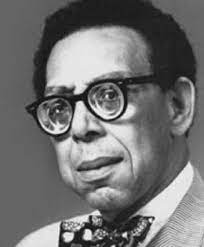Ask Whatever You Wish … Really?
by G.S. Augustine
Say To This Mountain
In Matthew 21, Jesus curses a fig tree that lacks fruit and it withers. In amazement the disciples asked how the tree withered so quickly. Jesus responded, “I tell you the truth, if you have faith and do not doubt, not only can you do what was done to this fig tree, but also you can say to this mountain, ‘Go throw yourself into the sea,’ and it will be done. If you believe, you will receive whatever you ask for in prayer.”
There are a lot of complaints about these few verses. First of all, Jesus curses a fig tree because it has no figs. Mark 11:13 tells us that the tree didn’t have figs because it wasn’t the season for figs. Hardly the tree’s fault. Jesus appears rash and petty. Yet the fruitless tree becomes a symbol of fruitless Israel and a prediction of Israel’s future. It also echos Malachi’s prediction about what to expect when the Lord appears at the Jewish temple (Malachi 2:1-2, 3:2). Our eyes glaze over though when Jesus says we can command a mountain to throw itself into the sea. Surely Jesus couldn’t mean this literally.

Isn’t This Just a Metaphorical Way of Speaking?
Actually, a metaphorical meaning is appropriate to the passage. When Jesus states, “this mountain” he is referring to where he is standing. “This mountain” here can only refer to Mount Zion, a common euphemism for Jerusalem. This extends the symbol of Israel’s lack of fruit but to its coming destruction. And three chapters later Jesus predicts exactly that. However, the fig tree actually withered, not just metaphorically. It is hard to escape the sense that Jesus meant real mountains thrown into real seas. There is a condition, though: one must believe and not doubt.
Western Christians are impatient with anyone suggesting that Jesus spoke in anything approaching literal. “With faith you can move mountains” encourages people. But no one would suggest it to clear a path for an interstate highway. And to be honest, neither would I. But saying Jesus didn’t mean what it looks like starts to sound like we’re covering for a presidential gaff. And if Jesus is the truth … well, you see the problem. We need to know if Jesus actually meant, “whatever you ask in prayer I will do for you.”
What Does The Bible Promise in Prayer and Under What Conditions?
A good way to understand what Jesus means is to synthesize a broad cross-section of Bible verses about prayer. Not every verse referring to prayer helps. Some verses are specific to particular situations. But we will consider those verses that deal with God’s promises regarding prayer and under what conditions. We also briefly look at examples of fasting. Though not an exhaustive study, we hope to discover if Jesus means what it sounds like he means.
Luke 18:1-8: Never Give Up
For me, the place to start is Luke 18—though others might not start here. I do this because of verse 1. “Then Jesus told them a parable to show them that they should always pray and never give up.” It is striking that Jesus teaches a “never give up attitude.” The widow makes the same request over and over. Is this necessary? Doesn’t God know already what we need? Does he forget if we don’t keep reminding him?
And yet here it is. The parable is about a widow who goes to a judge for justice against an adversary. The judge could care less and ignores her. But she keeps coming and bugging him. He finally breaks down and gives her what she wants to keep her from wearing him out. Jesus then says, “Listen to what the unjust judge says. And will not God bring about justice for his chosen ones who cry out to him day and night? I tell you he will see that they get justice and quickly.” And yet why is crying out day and night needed?
The Coming Kingdom of Christ Context
There are several things to notice. First, the context describes justice in a system stacked against the powerless. Luke 17 admonishes God’s people to remain faithful in light of Christ’s coming kingdom (17:32-33). The parable gives us a method for keeping this command. The rest of Luke 17 identifies obligations we have to watch ourselves (17:1-5), the power and results of faith (17:5-6, 11-19), and right attitudes for service (17:7-10). And Luke 18:8 ends the parable with the return of Christ. “However, when the Son of Man comes will he find faith on the earth?”
One could argue that the admonition to never give up was only for remaining faithful to the end. And that is certainly in focus.
The Context Extrapolated To All Prayer
However, the two teaching blocks that follow the parable expand the topic. They speak about humility in prayer (18:9-14), and the simple trust of a child in coming to Jesus (17:15-18). But ultimately it’s hard not to see “crying out day and night” as a pattern for all prayer.
The Apostle Paul speaks of something similar in 1 Thessalonians 5:16-17. There he admonishes his hearers to pray without ceasing. In Colossians 4:2 and Romans 12:12, he encourages devotion to and faithfulness in prayer. Jesus concludes that those who “cry out day and night” will get what they ask for quickly (18:7). Even a casual reading of the N.T. shows persistence and passion are regular conditions for effective prayer. But why this is so isn’t answered directly.
James 4:1-3, 1:5-8: Asking Is Not An Option
James 4 does not make a direct promise, but implies one. “You do not have because you do not ask God.” (4:2). James makes it clear that prayer for believers is not an option. The context deals with conflicts among believers that arise from uncontrolled desires. When they don’t get what they want, they become covetous and hostile.
Dropped into the middle of this indictment, however, is the simple phrase: “You do not have because you do not ask God.” Though James immediately returns to a charge of spiritual adultery (4:4), prayerlessness hangs in the air as Exhibit A. Asking God for what we need is more than an extra pathway to resources. James implies it dismantles the notion of scarcity that often breeds quarrels.
Complete Self-Reliance Is An Illusion
None of us can make it on our own. Find yourself alone in the Arizona desert with no resources and you might last only a few days. But with a Navaho guide, you’d be fine. They’ve lived there for centuries. But what if we find ourselves where people are unlikely to provide the help we need? We can turn to whatever schemes we cook up. They may work or not. But no scheme can protect us from the power of the created universe. Just ask anyone whose home was destroyed by a hurricane. At some point, praying to an infinite God with infinite resources is our only option. The Bible makes it clear that asking God to meet our needs is part of the plan.
And James himself says exactly that. “If any of you lacks wisdom, let him ask of God who gives to all generously without finding fault, and it will be given him” (James 1:5). God gives generously without shaming someone for asking. True, James specifically mentions wisdom, as the context demands, but the principles here apply to any “asking.”
Believing Does More Than We Think
There is a condition however: belief. “But when he asks, he must believe without any doubting, for the one who doubts is like a wave of the sea, blown and tossed by the wind. That man should not expect he will receive anything from the Lord; he is a double-minded man, unstable in all his ways” (1:6-8). The idea of confidence in God answering is part of the equation.
Below I will suggest something of why this might be so. But for now, it’s helpful to remember James’ complaint about spiritual adultery. “You adulterous people, don’t you know that friendship with the world is hatred toward God?” (4:4). Double-mindedness starts to look a lot like a person keeping his options open. If God doesn’t answer, maybe the devil has a plan B. And if wrong motives are driving us, it really doesn’t matter where we get it from. Prayer is for God’s help in living as a citizen of Christ’s kingdom not for acquiring weapons against it.
But, even with the right attitude, “believing that you have it” is needed. Jesus says the same thing about throwing a mountain into the sea (Matthew 21:22, cf. Mark 11:24).
Mark 9:21-24: Overcoming Doubt
Someone might say, “Yes, I know I need to believe and not doubt, but what if I can’t help doubting?” It’s a reasonable question. It may be that in most prayers we start with a measure of doubt. After Jesus comes down from the mount of transfiguration, he meets a boy possessed by an evil spirit. Jesus discovers disciples failed to drive it out. “O unbelieving generation … how long shall I put up with you,” he says. Clearly he expected his disciples to be able to heal the boy. But he complains not just about his disciples but the whole generation. It’s as if belief in God’s power (and our human authority?) should be part of our DNA.
Jesus asks the boy’s father how long it had been going on. The father replies that it had been since childhood. Then he says to Jesus, “But if you can do anything … please help us” (9:22). Jesus must have looked up with some surprise because he says, “IF you can? Everything is possible to him who believes.” The father immediately realizing his mistake says, “I do believe,” but adds, “help me overcome my unbelief.” In a prayer to Jesus, the father asks for help in his weakness. The writer of Hebrews exhorts his readers to take advantage of the same help (Hebrews 4:14-16). Paul speaks of help the Holy Spirit gives us in our weaknesses (Romans 8:26).
Prayer Itself Strengthens Belief
The disciples ask why they couldn’t cast out the demon. Jesus replies, “This kind can only come out by prayer.” The surprise in the text however, is that it doesn’t mention that Jesus prayed! If prayer is necessary why doesn’t the text tell us he prayed?
Jesus didn’t need to pray just then because he lived a life of prayer. Now, if we go back to the father’s request of Jesus to “help him overcome his unbelief” something insightful emerges. Prayer itself, when it becomes a lifestyle, increases our ability to believe and not doubt. Through prayer over time Jesus, by the Holy Spirit, builds faith into us organically.
And this is only natural. The more I get to know Jesus through prayer, the more his faithful character shines through. And the more I trust him. Pray for something long enough, over and over enough, and something interesting happens. God can convince you to the point you “believe and not doubt.” But again, why is this necessary?
Prayer Can Identify What I Don’t Want
For one thing, the opposite is true. There were many things I thought I wanted as a child that time showed I really didn’t. Later, I discovered I hadn’t known what I really wanted until I matured some and learned more. Prayer over time, sometimes a long time, makes that clear. In James’ parlance, we need wisdom from God before we can handle what he would give us.
John 14 and 15: Jesus Most Outlandish Promises
If any chapters in the Bible refute the idea we are just bystanders to God’s will, it’s here. Paul Simon’s song lyric “God only knows, God has his plan, the information’s unavailable to the mortal man” is toxic to the Body of Christ. Salvation may be sure, but in the meantime, God is off somewhere doing his thing. We’re to stuck having to make our way as best we can.
In John 14:12-14, Jesus rejects this practical deism. “I tell you the truth, anyone who has faith in me will do what I have been doing. He will do even greater things than these because I go to the Father. And I will do whatever you ask in my name, so that the Son may be glorified in the Father. You may ask me for anything in my name, and I will do it.”
The Attempt to Soften The Blow
The practical Deist immediately gravitates to the words “in my name” to blunt what Jesus implies. Much debate has raged over exactly what Jesus means here. But let me suggest what it can’t mean. It can’t mean that we have no say. It can’t mean that we are to parrot whatever lines Holy Spirit playwright gives us in the kingdom of God play. The clear implication is we are to creatively participate with Jesus in his cause. In the book of Acts, church leaders say things like, “It seemed good to the Holy Spirit and to us …” (Acts 15:28).
Human Co-Rulers of Creation
This has been true from the very beginning of the Bible. When God creates the first human couple he commands them to manage creation. “Let them rule over the fish of the sea, the birds of the air and all the living creatures that move along the ground” (said twice: Genesis 1:26, 28). Even if the fall modifies this, restoring the human race must include restoring us to our place in creation. And if one argues that must wait for the new heaven and earth, John 14 will challenge that.
“In Jesus Name” Briefly Explored
Though “asking in Jesus name” implies many factors, John 15 provides clear help. Jesus describes our connection with him like branches in a vine. And branches need to “remain in him” for any “fruitfulness” to occur. This does not mean perfect holiness or unquestioning compliance. Even the O.T. prophets would have trouble passing that test (just think of Jonah!). The parable about two sons in Matthew is instructive. One says he’ll do what his father asks but doesn’t. The second son refuses his father’s request but later decides to do it (Matthew 21:28-32). Jesus makes it clear: the second son did the father’s will, however haltingly.
Jesus doesn’t spell out everything abiding in him means. Obeying his word is there (John 15:7). We can infer communion with him in prayer is part of it. But there’s more. Added to allegiance to Christ, Jesus says we are to love each other as he loved us (John 15:9-12, 16), stand firm in the face of worldly opposition, (John 15:18-20), and bear fruit for his kingdom (John 15:7-8). Bearing fruit likely includes those things related to being salt and light.
Once We Meet Conditions
However, once we meet these conditions, “ask whatever you wish and you will have it.” To say this doesn’t mean what it looks like is a problem. It borders on saying Jesus is hiding small print somewhere or is simply wrong. The reason we hesitate in accepting it is that our experience doesn’t seem to match it very often. Are we missing something?
Let me suggest a partial answer lies in our cultural understanding of the word “you.” The word in Greek is plural. Western culture tends to understand that word as meaning “all the individual ‘you-s’ out there.” But what if Jesus is talking about a collective “you”? Yes, he does speak of individual branches, but still it is a picture of a single vine. To understand this, we will need to look at other conditions of prayer the Bible sets.
1 John 5:13-15: The Catch-22 Of Deist Thought
Before we do that though, we need to look at a question well-read Bible students will ask. Aren’t we supposed to pray according to God’s will? “This is the confidence we have in approaching God: that if we ask anything according to his will, he hears us. And we know that if he hears us—whatever we ask—we know that have what we asked of him” (1 John 5:14—15). Doesn’t this mean that if what we ask for isn’t God’s will, he won’t give it? Well, yes and no. But it can’t mean that our desires play no part.
Obviously, if we are praying for God to help us to rob a bank, he won’t listen. But if we mean that God has a specific thing in mind, and it’s our job to guess, then “no.” Here’s why that logic fails:
If I guess what God wills and pray for that, God will give it to me. But if I guess wrong, God won’t give me what I guessed wrong about, but he will give me what I didn’t guess, even if I didn’t ask for it, because that was his will all along.
If that is the case, prayer is superfluous. A simplistic argument for sure, but a conclusion many Christians come to.
Conditions Not Content
Praying “according to God’s will” must refer not to the content of our prayers but to the conditions under which we pray. A clue that John means this is in the parenthetical remark “And we know that if he hears us—whatever we ask—we know that we have what ask of him.”
The context of chapters 4 and 5 attests to this. In 1 John 4, love for brothers and sisters is proof of one’s love for and knowledge of God (4:7-21). This is required component for effective prayer. In chapter 5, he says those born of God are those who believe Jesus is the Christ (5:1-10). He who believes this has the Son and he who has the Son has eternal life (5:11-12). Knowing we have eternal life (5:13) provides confidence we have in “approaching God” (5:14). John indicates that these are conditions of our “asking”. This points to the notion that “according to his will” refers to the conditions not content.
But the way the sentence is constructed, one could still read it to refer to the content of prayer. But problems with this view abound not only in this chapter, but also in the rest of the New Testament. We’ll continue to show that.
Matthew 18:19: When Believers Agree
As said above, the plural “you” in “Whatever you (all) ask in prayer” most likely refers to a collective you. Is there any passage that indicates this? In Matthew 19 Jesus makes a statement that seems to say so. However, it is in a curious context. The chapter begins with the call to become like little children in our faith (18:1-14). Jesus illustrates God’s concern for them with the parable of the lost sheep. After that are instructions dealing with brothers who sin against us (8:15-20).
Jesus adds to that, church authority to bind and loose on earth. Then he says, “Again, I tell you that if two of you on earth agree about anything you ask for, it will be done for you by my Father in heaven. For where two or three of you come together, there am I with them.”
Church Authority or Something More?
The narrowest conclusion is that the statement refers only to binding and loosing. To be fair, it certainly does apply to that. The agreement is “on earth” which corresponds to “binding on earth“. However, the fly in the ointment is the phrase “anything you ask for.” This appears to go beyond just the issue binding and loosing.
It is possible verse 19 was not original to Jesus discussion of binding and loosing and Matthew made the connection. That of course still would not prove that Matthew did not intend to limit it to binding and loosing. But if that is so, why leave in the words “anything you ask for.” Matthew has no problems adjusting Jesus words to clarify his meaning. He adds to Luke’s “Blessed are the poor” to read, “Blessed are the poor in spirit” in Matthew 5.
Matthew may be expanding the context to include other types of prayer. But it certainly isn’t conclusive. Is there any other indication in the New Testament, that effective prayer may require a collective of believers?
James 5:13-16: Better Call The Elders
“Is any one of you in trouble? He should pray. Is anyone happy? Let him sing songs of praise. Is any one sick? He should call the elders of the church to pray over and anoint him with oil in the name of the Lord. And the prayer offered in faith will make the sick person well; the Lord will raise him up. If he has sinned, he will be forgiven. Therefore confess your sins to one another and pray for each other so that you may be healed. The prayer of a righteous man is powerful and effective.”
James begins with the individual praying when in trouble or happy. But when the person is sick, he directs us to “call the elders of the church” to pray and anoint. The sick person is made well by prayer in faith of a collective of disciples. James then admonishes us to “confess our sins to one another and pray for one another that you may be healed.” Here again the sense is something we do as a community. And its in that community that a righteous man exists where prayer is powerful and effective.
The Collective Pattern In The Old Testament
We find this collective sense of confessing and forsaking sin to bring about healing in the Old Testament. In 2 Chronicles 7:14, God says, “If my people who are called by my name and humble themselves and pray and seek my face and turn from their wicked ways, then will I hear from heaven above and will forgive their sin and will heal their land.”
The Old Testament corroborates this idea in Israel’s three festivals. Solemn assemblies associated with them were sometimes a means for Israel to return to God (see 2 Chronicles 30:6-9). In fact, God regularly dealt with Israel collectively. Though seven thousand had not worshiped Baal, God judged all Israel with a 3 1/2 year drought (1 Kings 17, cf. 19:18).
One Old Testament text that encourages collective prayer is another that western Christians individualize. Jeremiah speaks for God to the exiles headed to Babylon. “Seek the peace of the city to which I carried you into exile. Pray to the Lord for it, because if it prospers, you too will prosper” (Jeremiah 29:7). Jeremiah writes this letter to the whole exiled community. They would have understood it as something they should do as a community.
How Could It Be Otherwise?
This makes sense since all humanity is equal before God. When God commissioned humans to rule, it wasn’t to one human but to the human race as a whole. What we decide together to do under our allegiance to Christ has this authority. It is no accident that Jesus prayer just before his passion in John 17 was for unity of believers. Paul implores the church to “maintain the unity of the Spirit in the bond of peace” (Ephesians 4:3). It is this context that we will grow up into the fullness of Christ (Ephesians 4:13).
Provisos: Reasonable Conditions Given The Character of God
In addition to believing prayer, there are stipulations and conditions for prayer to be effective. The list isn’t long and there is no hidden bait and switch. They are reasonable requirements that maintain good relationships, prevent manipulation, and foster peace and unity. I have simply listed these below. Any other conditions would broadly fall somewhere under these.
- Pure Heart: “If I had cherished sin in my heart, the Lord would not have listened” (Psalm 66:18)
- Honesty: “The Lord is near to all who call, to all who call on him in truth” (Psalm 145:18)
- Thankfulness: “Do not be anxious about anything, but in everything by prayer and petition, with thanksgiving, present your requests to God” (Philippians 4:6)
- Being Alert and Self Controlled: “The end of all things is near. “Therefore be alert & self controlled so you can pray” (1 Peter 4:7).
- Respect of Spouse: “Husbands … be considerate as you live with your wives and treat them with respect … so that nothing will hinder your prayers (1 Peter 3:7)
- Forgiving Others: “Forgive us our debts and we forgive our debtors” (Matthew 6:12). Hostile relationships affect prayer effectiveness.
- Waiting Expectantly: “In the morning, O Lord … I lay my requests before you and wait in expectation (Psalm 5:3, cf. Psalm 27:14, Isaiah 40:31, et al).
Expanding On A Most Important Proviso
The last item on the list needs a little more consideration however. Waiting on the Lord is not just some cliche. It is central feature of prayer. In all of the passages that refer to receiving whatever you ask, it only says that you will receive it. It never says when. We often think that if I don’t get it this week or this month or this year, God said “no”. But is this true?
Abraham and Sarah waited 25 years for a son. Paul waits 3 years before God frees him from his last imprisonment in Acts. The prophets wait all their lives to see the completion of their work, and sometimes not till long after. Jesus said, “For I tell you the truth, many prophets and righteousness men longed to see what you see and did not see it and hear what you hear and did not hear it” (Matthew 13:17).
The writer of Hebrews puts it in an even more striking way. “These were all commended for their faith, yet none of them received what was promised. God planned something better for us so that only together with us would they be made perfect” (Hebrews 11:39-40).
Only 80 Years? Is That All?
Does that mean that they never received it? Of course not! No matter how much the Bible speaks to the contrary, we think life is only from physical birth to death. If it doesn’t happen in our eighty odd years, then it doesn’t happen at all. The blessed hope that Paul speaks about is more or less treated as a consolation prize. Or worse, we sympathize with Hamlet:
Who would these fardels bear / to grunt and sweat under a weary life / but that the dread of something after death? / The undiscovered country from whose bourn / no traveler returns, puzzles the will / and makes us rather bear those ills we have / than fly to others that we know not of?
Hamlet, Act III, Scene I
But what if God doesn’t give us what we ask for until the resurrection? Do we say, “Well that doesn’t count?” We pray for God to heal a paraplegic. Won’t that happen in the resurrection? If eternity is eternity, our 80 years will eventually be a vague memory in the history of our lives. Giving up in prayer is just not a reasonable response in light of that. Does waiting mean God isn’t listening and won’t act?
Jesus tried to convince us otherwise: “Listen to what the unjust judge says. And will not God bring about justice for his chosen ones who cry out to him day and night? Will he keep putting them off? I tell you, he will see they get justice, and quickly.
If I and others pray for something for 10 years, has God failed because the answer took 15 years? When Jesus said to always pray and never give up, I think he meant just that.
Special Circumstances: When The Stakes Are High
There are prayer circumstances where what is at stake is high enough that it requires extra concentration. In those circumstances, the Bible prescribes fasting. In Ezra 8:21-23, the return journey of exiles from Babylon to Palestine was fraught with danger. So Ezra said: “I proclaimed a fast, so that we might humble ourselves before our God and ask him for a safe journey for us and our children.”
In Acts 13:3, the church as a whole fasts and prays to commission Saul and Barnabas as missionaries. Nehemiah fasts and prays when he hears about the problems in Jerusalem (Nehemiah 1:4). When the stakes have been high in my life, fasting seemed like the only reasonable course. It’s not that depriving myself somehow made God more amenable to my request. But fasting focused my prayers in powerful ways. Prayer involves me in a partnership with God about the things that I’m concerned about. Fasting allows me to more fully enter into that partnership.
A Speculative Thought: What If God Built Power Into Us?
I promised to share an idea as to why a determined collective approach in prayer may be a necessary. I have little Biblical warrant for this other than God commissioned the human race to rule creation (see above). But a set of scientific studies over the last 20 years have some intriguing possibilities for prayer.
September 11 Revealed An Previously Unknown Human Potential
On September 11, 2001, terrorists flew planes into the World Trade Center killing over 3,000 people. The whole world watched and gasped in unison. Almost immediately something happened that as far as anyone knew had never happened before. Human emotion appeared to affect inanimate objects.
In the world, special machines known as Random Number Generators create variables for physics experiments. There are 35 of them. Their only job is create unending lists of un-patterned random numbers used in highly complex calculations. The day after the attacks, all the random number generators became patterned. Researchers were puzzled as to why. But in 2006 a tsunami hit Indonesia killing 600 people. The world gasped in unison once again, and all the random number generators became patterned … again.
Secrets of the Human Heart Muscle
After exhaustive study, researchers hypothesized that the intense emotion of billions of people directly moved the generators to become patterned. Since then an organization called Heart Math has done over a million experiments on this. They discovered that human emotion radiates from people outwardly physically affecting things through vibrations created by the heart.
For instance, say person A fears person B person. It is possible to measure A’s fears with digital equipment in person B’s brain. The same is true if person A is in love with person B. That will also register in person B’s brain. If I’m angry, a bowl of yogurt will reflect that anger with electrical impulses if it’s near enough.
Part of God’s Design?
So what if when I pray with emotions engaged, I’m actually affecting the world around me in some physical way? What if God intended it to be that way? And what if I gather with other people whose conviction and emotion agrees with mine? Might not our focus together intensify the effect?
I believe that although God gave the human race authority over creation, it is still under his authority. God is still the ultimate ruler of creation. But what if God is also waiting for our participation simply because he set it up that way? What if prayer is more than trying to twist God’s arm to do something for us? What if our participation with him that has genuine physical qualities? Might it be so far fetched that a large enough body of people with intense enough emotion move a mountain? Just a thought.
Conclusion
When Jesus promised that “whatever you ask in my name will be done for you,” he had to have meant exactly that. To say otherwise is to engage in a dance that appears bent on dodging unpleasant questions. The desire to soften what the Bible says moves the church toward what Kenda Creasy Dean called “Therapeutic Moralistic Deism.” It’s helpful. It’s moral. It just lacks any real power. The Apostle Paul flatly rejects this. “For the kingdom of God is not a matter of talk but of power” (1 Corinthians 4:20). Anne Dillard put it eloquently:
I do not find Christians outside the catacombs sufficiently sensible of conditions. Does anyone have the foggiest idea what sort of power we so blithely invoke? Or, as I suspect, does no one believe a word of it? The churches are children playing on the floor with their chemistry sets mixing up a batch of TNT to kill a Sunday morning. It is madness to wear ladies’ straw hats and velvet hats to church; we should all be wearing crash helmets. Ushers should issue life preservers and signal flares; they should lash us to our pews.
Anne Dillard, “An Expedition to the Pole” in Teaching A Stone To Talk
If God is God
If God is God, he not only has the power to do what he says, he must be willing. That doesn’t mean faith is magic or that God is an errand boy. God is God and we are not. Some things we want do not account for unforeseen negative consequences. We are not always aware of sinful intentions behind our requests. We do not always see all of the details involved in bringing something about. I don’t pack the trunk of my car until I have all the luggage, backpacks and accouterments at hand. If I do, I invariably have to pull everything out and start over or something won’t fit.
Taking the Long View
Assessing if and when God has answered our prayer needs adjustment. I once was involved in a business deal that would have allowed me to retire at thirty-five. I had prayed about it but to be honest not very much. The deal fell through and I lost everything. My credit plummeted and had to sell my house. For a while I complained to God about how little we had. But God led my wife and I down a different path that got us back on our feet. We worked and saved for the next 30 years. At 67 I was able to retire more comfortably than many.
But had I got what I wanted at 35, I wouldn’t have the family I’m so grateful for now. Because we struggled and had to work together, my kids gained a sense of family team. They developed courage, discipline, and a solid work ethic. They came to trust God in ways I don’t think they would have otherwise. When my oldest son Zach got married, he said to me that he wanted a family like ours. “I watched how your trust in God turned out and I want the same for my family.”
In the end, God did answer my financial prayers as well. He didn’t need to do that for me to be grateful. But God is faithful to care for his people. It just might take a form we haven’t considered. My answer came 30 years later, but I also got the family that I wanted all along.
Life Understood
Soren Kierkegaard once said, “Life can only be understood backward, but it must be lived forward.” I believe that God intends to answer all our prayers rightly offered. But he has the right to answer them in his own time and in his own way.
And it must be that way. One day God may show us all the circumstances sounding our prayer for something. We’ll see the possible consequences from various actions and what God chose to do. Then we’ll say, “That is how I would have done it had I known what God knew.”






